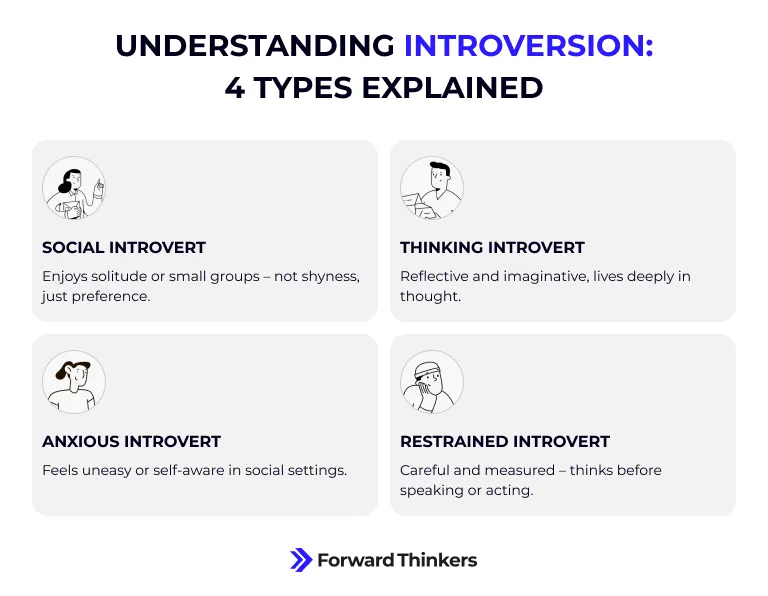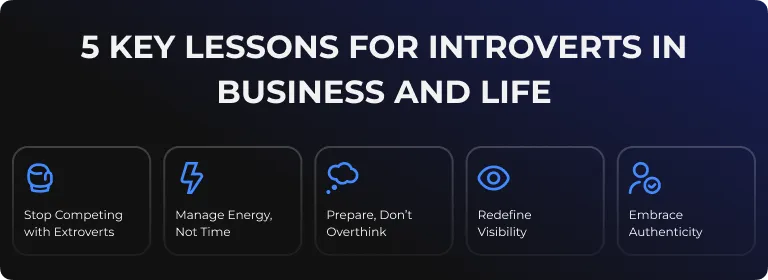Thriving as an Introvert in Business & Leadership

For most of my career, people assumed I was an extrovert.
I’ve led teams, built partnerships, spoken on stages — on the surface, I fit the mold perfectly. But behind the scenes, I was constantly drained. Networking events left me exhausted. Big meetings caused anxiety. And pushing myself to “perform” like an extrovert slowly chipped away at my energy and confidence.
For years, I thought this was normal. That success required extroversion. But eventually, I realized the exhaustion wasn’t sustainable — and worse, it was pulling me away from what mattered: family, relationships, and my own well-being.
The Turning Point: Self-Awareness Over Performance
Everything shifted when I stopped trying to act extroverted and started honoring who I really am.
I began managing my energy instead of masking it.
I chose depth over volume in relationships.
I prioritized presence over performance.
The result?
More confidence, more clarity, and ironically — greater success and stronger leadership.
Understanding Introversion Isn’t One-Size-Fits-All
A key moment for me was discovering there are multiple introvert types:
- Social Introverts
- Thinking Introverts
- Anxious Introverts
- Restrained Introverts
I’m a blend of thinking and restrained — reflective and intentional. Recognizing this helped me build a lifestyle and career rhythm that supports, rather than drains, my strengths.

Lessons for Introverts in Business & Life
1. Stop Playing the Extrovert Game
You don’t win by being louder — you win by being meaningful and intentional.
2. Protect Your Energy Like Your Calendar
Recharge time isn’t optional — it’s fuel.
3. Prepare with Purpose
Introverts excel with preparation — but avoid overthinking loops.
4. Redefine Visibility
Impact > volume. Thoughtful voices influence deeply.
5. Lead With Authenticity
Realness builds trust — not performance.
When I embraced who I am instead of who I thought I had to be, success followed — without burnout.

💡 Ready to Lead Authentically?
Build a leadership style rooted in your strengths — not a stereotype.
Introvert or extrovert, the key is alignment and self-awareness.
